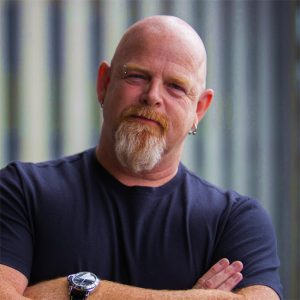125: Wealth and the Deathbed Framework

Podcast: Download
I’ve learned a lot of stuff in my life—from the principles of neurosurgery to the intricacies of cryptocurrency.
Some of this stuff is pretty complicated…at first. But, I’m going to let you in on a little secret if you don’t know it already.
Just about everything that appears complex at first can be broken down into simple components.
If I have any God-given gift, it is the ability to simplify. And thank God for that because I’m not smart enough to understand anything that is truly complex.
Any time I try to learn something new, I just try to break it down into simple little pieces. Eventually I get it. That is my framework for learning.
I like frameworks. Creating frameworks helps me simplify everything. Otherwise, I would be overwhelmed with the decisions that come up in life all the time.
Let me give you a couple of examples of frameworks that I use that help me from losing my sanity.
The first one is make tomorrow’s decisions today. That’s why I moved to Santa Barbara. We had a gorgeous home in the Northern Suburbs of Chicago and great friends. Why move?
Well, I noticed half the houses on my street were empty in the winter. All the retirees were in Florida. Would that be me in 25 years? With the kids out of the house in other states and subzero temperatures, would I want to live in Chicago anymore?
The answer was no. Instead, I decided that if I just moved to where I might want to retire someday today with my young family, my wife and I wouldn’t have to move and make new friends in our 70s. And…even better, the kids might want to come home and visit us!
Another framework that I use to guide my life is the deathbed framework. This one is particularly useful.
Let me give you an example of how it works.
A couple weeks ago, I got an email from a college student who wanted to talk to me about whether or not he should go to medical school. I get this one a lot and I have a standard answer that seems to be pretty useful.
I ask, “If you don’t go to medical school, will you regret it on your deathbed?” After all, that’s really the only reason to become a doctor these days. It sure ain’t the money!
I have, in hindsight, asked myself the same question. That is, if I knew then what I know now, would I still have gone to medical school.
For me the answer is yes. Even though I don’t practice anymore and I make a lot more money than just about any practicing physician that I know, I’m glad I did it. If I didn’t,
someday on my deathbed, I would wonder what it would have been like to be a doctor.
This framework might seem over-simplistic. After all, what about the mission in life thing and all those years you would have to put into it? Well, I would argue that all of those other variables just complicate the question.
Don’t try to justify what you want if you really want it because, whether it’s rationale or not, you will regret not going for it. Some decisions are just visceral.
The deathbed framework is actually very practical and broadly applicable in many circumstances.
For instance, I’m not one to spend a lot on myself. I like giving people things because I enjoy the experience of making them happy.
And when I give things to people, my preference will always to provide and experience rather than a thing. For the last several years, I’ve given my nephew NBA tickets for his birthday because he loves basketball.
If I gave him some mall junk, he’d enjoy it for a few minutes than never think about it again. But he will always have his memories of those games to cherish.
For me personally, some of the most vivid memories of childhood are going to professional hockey, football, and baseball games. I remember going to see the Rolling Stones and the Red Hot Chili Peppers. I remember very little about the stuff people gave me over the years.
The experiences are what I will take to my deathbed and those are the things, in my opinion, that are important to splurge on a little bit and start collecting as they will always be with you.
Experiences, in the end, are the ultimate currency of a life well lived.
My guest on Wealth Formula Podcast today has had enough interesting experiences for multiple lives and has given others even more.
His name is Steve Sims and on this week’s Wealth Formula Podcast we talk about how his company might be able to enrich your experiential life.
Steve Sims is the visionary founder of Bluefish: the world’s first luxury concierge that delivers the highest level of personalized travel, transportation, and cutting-edge entertainment services to corporate executives, celebrities, professional athletes, and other discerning individuals interested in living life to its fullest.
Shownotes:
[00:07] Introduction
[20:31] Steve’s Story: His trigger of inspiration
[26:05] Early Game
[29:10] Experiences Over Stuff
[34:25] Bluefish
Get in touch with Steve:
- thebluefish.com
- stevedsims.com
- Text “uglysims” to 345345
[48:18] Outro
 Send Buck a voice message!
Send Buck a voice message!





